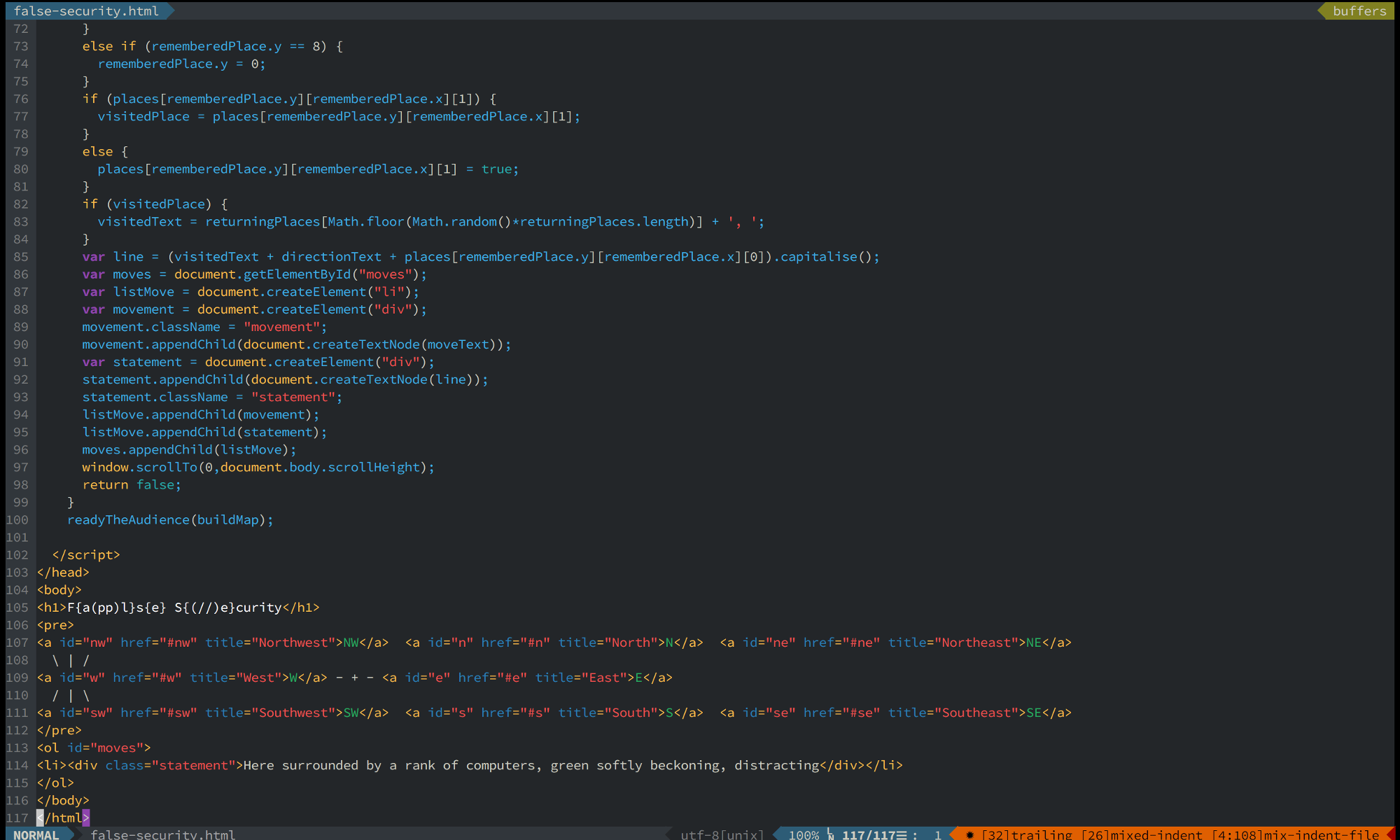I’ve been asking myself what programmatic (or programmed) texts add to nonfiction (aside from educational games). In drafting up the possibilities with programmatic texts they seem to me to be (or at least start with):
- manipulation of source nonfictional texts
- generation of nonfictional texts
- interrogation of nonfictional texts
- additional meaning through kinetic aspects of the text (textual behaviour)
- interaction with the text
And in reflecting on that I’ve collected a few examples of nonfictional pieces that use programmatic elements.
Infinity blade game review on Kill screen
J. Nicholas Geist’s review of Infinity blade from May 2011 uses interaction with the review and dynamic effects. It gives the reader a sense of the game that would otherwise only be stated (and not experiential).
Game developers conference game
In 2009, Jim Munroe was commissioned to produce a text game set at the game developers conference. He documented his experience in an interactive (non)fiction game Game developers conference 2009.
Though still anchored to a “main character”, you have a limited ability to view the conference in your own way. I did find myself trying to interact with the people around me only to be frustrated at their unwillingness to say anything meaningful. A few attempts at that and I was pushed over to the next day. You can try it yourself (and for a primer on interactive fiction start with Emily Short’s Interactive fiction resources).
Taroko gorge: a nature poetry generator
Nick Montfort’s poetry generator Taroko gorge combines words to simulate a nature poem. It captures a mutable description of the gorge with its seeming endlessness. The poem has also spawned numerous remixes (I particularly like J. R. Carpenter’s Along the briny beach).
Programmatic manipulation
There are other methods of generating text that produce text output. Using NLTK or Gnoetry static texts can be created by manipulating source texts (there are also many other generators and you can read produced poems on Gnoetry daily). I experimented with Gnoetry earlier this year using source texts including novels, poetry, film scripts and lyrics. What though would these experiments do to nonfiction? Would removing the context make them meaningless?
Nonfictional hypertext
Lastly, while broadly speaking most of the Internet collapses into the definition of nonfictional hypertext, the programmatic aspects (apart from markup) are generally (that is, pushed to their boundaries). Eastgate’s hypertext nonfiction provides for more interesting possibilities (though not freely available).
